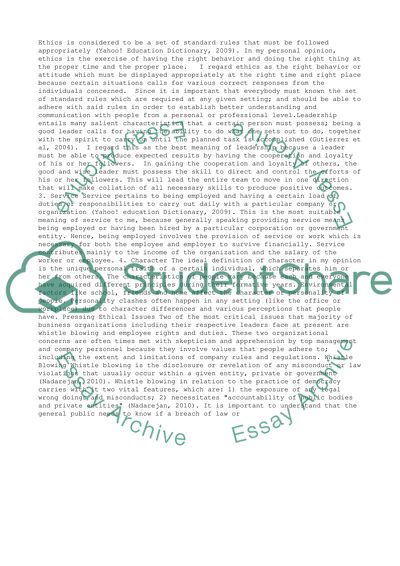Cite this document
(“Personal ethics Essay Example | Topics and Well Written Essays - 2250 words”, n.d.)
Retrieved from https://studentshare.org/management/1419632-personal-ethics
Retrieved from https://studentshare.org/management/1419632-personal-ethics
(Personal Ethics Essay Example | Topics and Well Written Essays - 2250 Words)
https://studentshare.org/management/1419632-personal-ethics.
https://studentshare.org/management/1419632-personal-ethics.
“Personal Ethics Essay Example | Topics and Well Written Essays - 2250 Words”, n.d. https://studentshare.org/management/1419632-personal-ethics.


